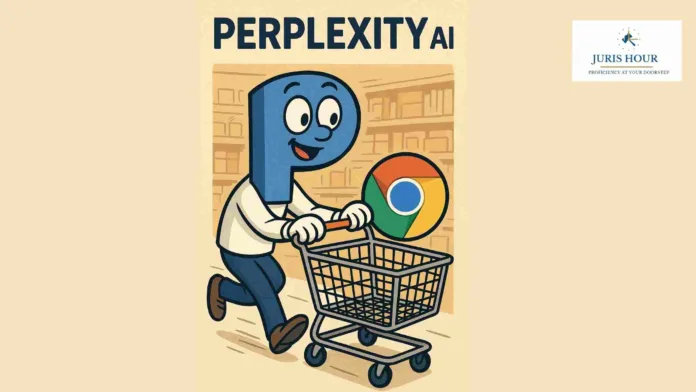In an audacious move that has sent ripples through Silicon Valley, Aravind Srinivas’ Perplexity AI has tabled a staggering $34.5 billion all-cash offer to acquire Google Chrome — despite the browser not being on the market. The bid, more than double Perplexity’s own $14 billion valuation, underscores the startup’s ambition to leapfrog into the AI search big leagues.
Perplexity, just three years old, is no stranger to bold plays. Earlier this year, it floated a proposal to merge with TikTok’s US operations to allay political concerns over Chinese ownership. Now, its attention has shifted to Chrome’s three billion-strong global user base, a scale that could instantly put it in direct competition with AI powerhouses like OpenAI.
Antitrust winds in the background
The timing of the offer is no coincidence. Google is facing mounting antitrust challenges in the United States, where a federal court recently ruled it unlawfully monopolised online search. The Department of Justice has floated the possibility — however remote — that divesting Chrome could be one remedy to restore competition.
Google has vowed to appeal and maintains Chrome is integral to a competitive market. Analysts caution that any forced sale would face a drawn-out legal battle, potentially ending up before the US Supreme Court.
Financing still a mystery
Perplexity has not detailed how it would finance such a massive acquisition but claims several unnamed investment funds are ready to back the deal in full. The company, which has raised about $1 billion to date from investors including Nvidia and SoftBank, promises to:
- Keep Chrome’s open-source code (Chromium) freely available.
- Invest $3 billion in the product over two years.
- Retain Google as the default search engine in Chrome.
The pitch frames the deal as a pro-competition move that safeguards user choice.
OpenAI and Yahoo have also circled Chrome
Perplexity isn’t alone in seeing Chrome as a strategic AI asset. Court testimony earlier this year revealed that OpenAI and Yahoo had also explored buying Chrome. In 2023, OpenAI unsuccessfully sought access to Google’s search API for ChatGPT, later relying on Microsoft’s Bing while admitting it remains years away from building a full-scale search engine.
Unlikely, but strategically explosive
Industry observers doubt Google would voluntarily give up Chrome, given its role in funnelling user data into Google’s AI systems and powering new AI-driven features like “Overviews” in search results. But the Justice Department argues that Google’s control of core search infrastructure could tilt the AI race unfairly.
For now, Chrome remains firmly under Google’s control. Still, as the antitrust trial edges toward potential remedies, Perplexity’s eyebrow-raising bid has ensured one thing: the browser’s future is now a live question in the battle for AI dominance.
Read More: CESTAT Rules ‘Gripple Hanger System’ Amounts to Manufacture Under Excise Law

